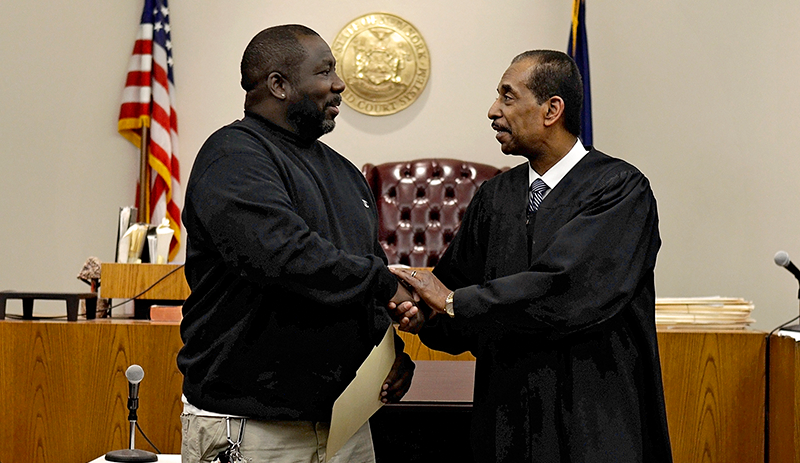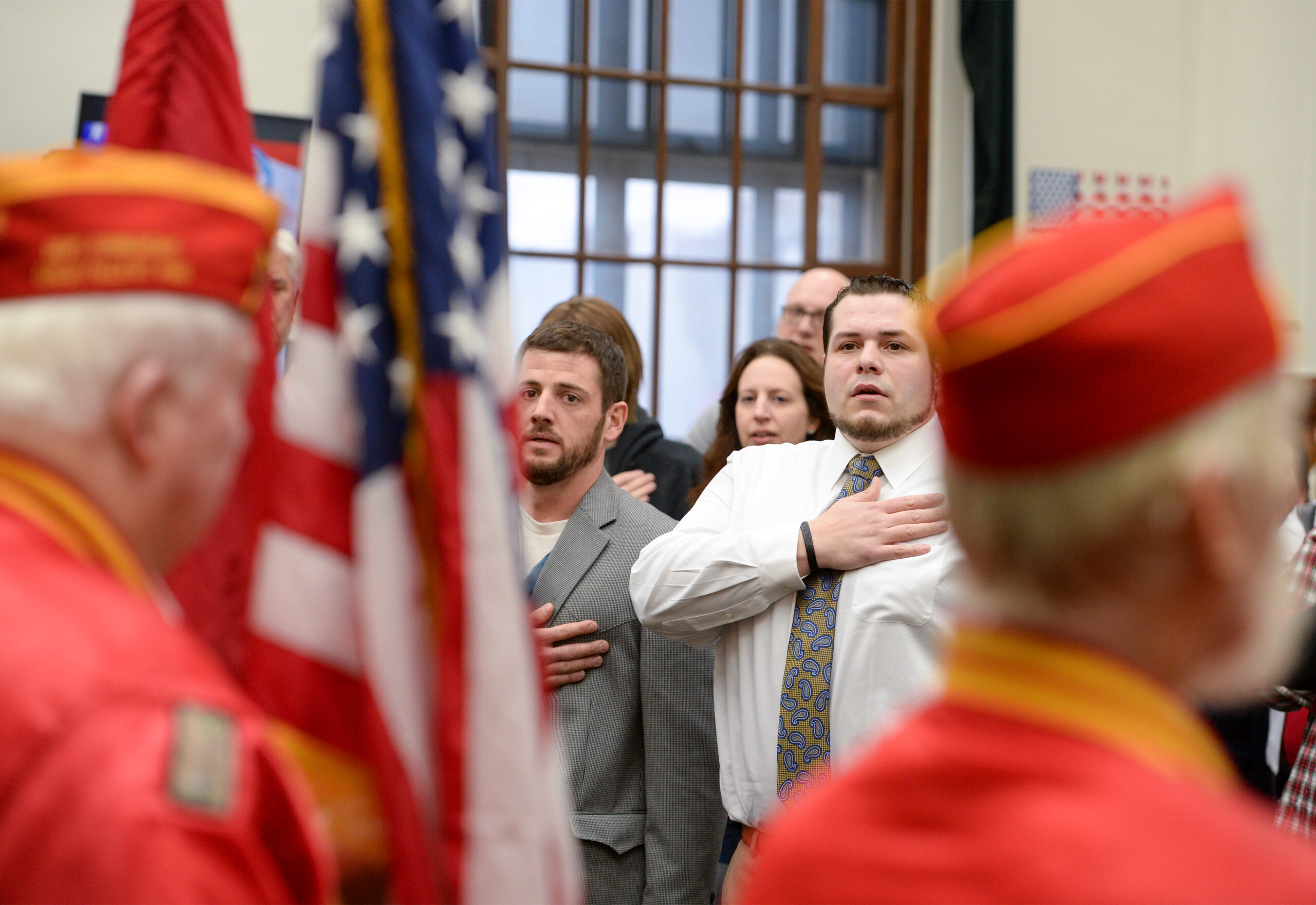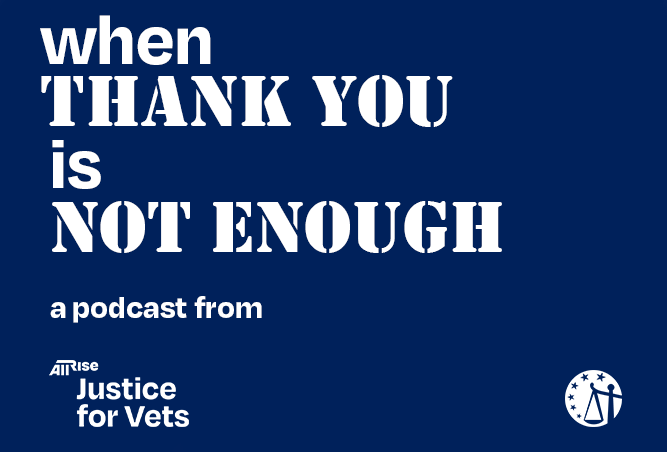)
Justice for Vets
We transform how the justice system identifies, assesses, and treats our veterans.
Justice for Vets transforms the way the justice system identifies, assesses, and treats our veterans by ensuring that no veteran is left behind. We provide training and technical assistance to help communities bring together local, state, and federal resources to directly serve veterans involved in the justice system due to substance use and mental health disorders.
In doing so, we keep veterans out of jail and prison and connect them to the benefits and treatment they have earned, all while saving tax dollars for the American public.

Ensuring No Veteran Is Left Behind
veterans have symptoms of a mental health disorder or cognitive impairment
Iraq and Afghanistan veterans have a substance use disorder
of veterans living with PTSD do not receive treatment
veterans are incarcerated in U.S. jails or prisons
New Easy-Application Grant for Veterans Treatment Courts
All Rise’s Justice for Vets has developed a new, easy-application grant program in collaboration with the Bureau of Justice Assistance (BJA). Don’t miss this opportunity; applications are due January 31, 2024.
Serving Those Who Served Us
Justice for Vets offers a wide variety of free resources to educate public health, public safety, and veterans service professionals on evidence-based best practices for working with justice-involved veterans diagnosed with mental health and substance use disorders.
From live, in-person trainings and webinars to online courses, publications, and offerings specifically for veteran mentors, if you need it, we have it.

Podcast: When Thank You Is Not Enough
We say, “Thank you for your service.” We say we are “a grateful nation.” But what should we do when “thank you” isn’t enough?
Hosted by Major General (ret.) Clyde “Butch” Tate, each episode of this podcast takes you on a journey with veterans, subject matter experts, and people doing heroic work on behalf of those who have served.

Our Story
Justice for Vets was founded in 2010 to support the emergence of veterans treatment courts and assist communities with bringing together local, state, and federal resources to directly serve veterans involved in the justice system due to mental health disorders, trauma, and substance use.
In 2013, Justice for Vets launched the Veteran Mentor Corps to train volunteer veteran mentors and mentor coordinators serving in veterans treatment courts.